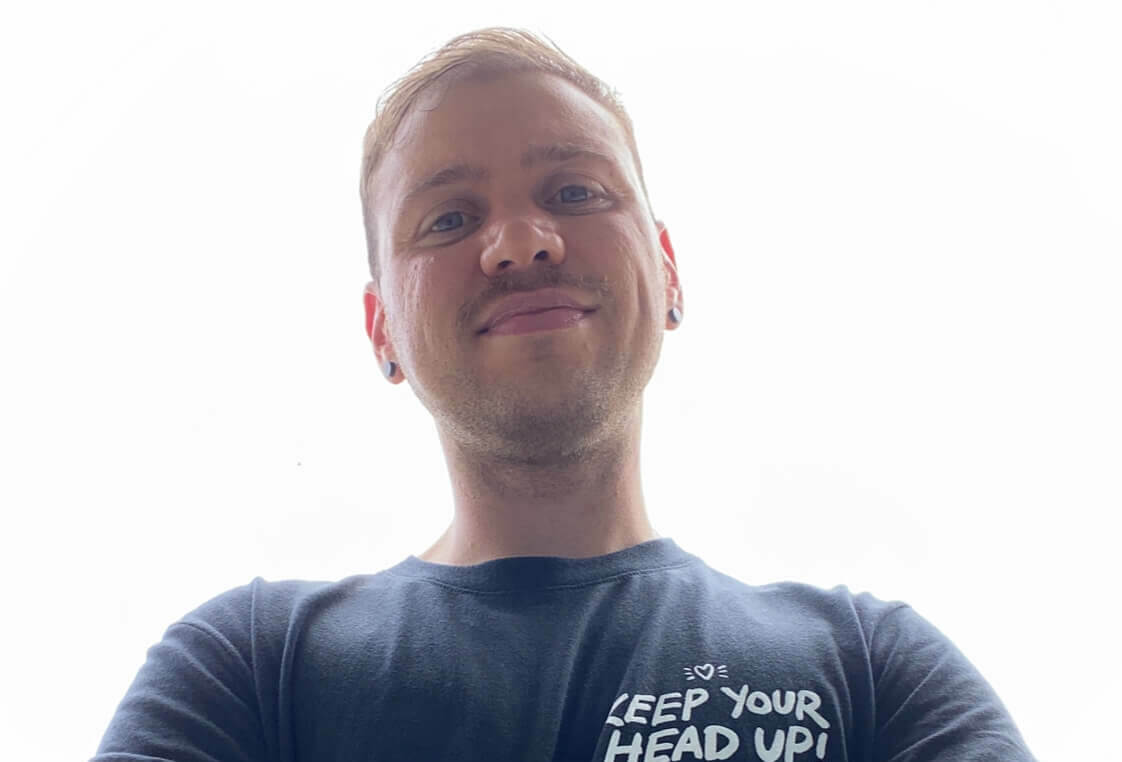#TheWholeMe: Sarah’s Story
In celebration of #TheWholeMe, a campaign launched in partnership with Instagram, Sarah Bryan takes us on her journey as she tells her story
The negative thoughts and feelings about my body began when I was in my teens. I had just started high school and for the first time in my life, people started commenting on my changing body. Puberty wasn’t unkind to me but it brought with it some fairly noticeable changes.
There is a common misconception that issues relating to body image are not serious enough or worthy of seeking support for. If you are not engaging in certain eating disorder behaviours, you may believe that your issues are not significant enough to be receiving help. We are taught early on, that caring too much about our appearances is ‘vain’ and ‘self-absorbed’. We convince ourselves that it is selfish to feel so horribly about our bodies when other people are dealing with much more complex issues. More often than not, it’s something we believe that we need to ‘fix’ on our own. That it can be cured by way of changing our weight and dieting.
Negative body image goes beyond the occasional negative thought. It affects your mental wellbeing and consumes many aspects of your life. It can dictate what you do (or don’t do), what you eat, what you wear, how you spend your time and how you take care of yourself. Despite what we have been taught and the behaviours learnt along the way, it is not mentally healthy to constantly be obsessing over your appearance, your weight and your body.
Through traditional media, advertising and now social media, we are often shown that a picture of health, success and beauty is portrayed by someone slim, white and able-bodied. It emphasizes that our value as a human-being is based on appearance and if we don’t measure up to this ideal, we can begin to believe that we need to change our bodies to be accepted.
I started to feel differently about my own body when I was in high school. Like many teenage bodies, it was changing and I was struggling to accept these changes.
My new adolescent body wasn’t significantly different to that of my peers, but I began to feel like it wasn’t my body anymore. This combined with appearance-based bullying at school; I started to believe that my body was ‘wrong’. Every time I looked in the mirror, I saw a body that was too ‘big’ and that took up too much space. I longed to be smaller, to look like the women and girls I saw in the latest magazines or TV shows and most importantly, to fit in with my classmates.
I began to believe that my body needed to look a certain way to be accepted, to be desirable, to be loved and to be worthy. My value as a human being was tied to my body. I truly believed that my body was ‘wrong’. Even when I tried to ‘fix’ it and make it smaller, that nasty voice inside my head was still telling me I wasn’t good enough. Not thin enough. Not pretty enough.
I began to disengage with things that had previously brought me joy. I quit netball, avoided swimming (and if I had to wear a swimsuit, I would make sure I was as covered up as possible!) and generally tried to make myself as invisible as possible. I spent so many sleepless nights worrying about what other people thought of my body and wondering if certain situations or outcomes would be different if I was smaller.
As I entered my 20’s, I only retreated from my everyday life even more. I struggled with severe depression and anxiety, which was exacerbated by the negative feelings I had about my body. I engaged in disordered and restrictive behaviours, as I was convinced my life would be better if I were able to shrink my body.
I avoided trying new experiences and meeting new people because I lacked confidence in my body. I missed out on life-changing opportunities and creating memories with loved ones because the feelings that I had about my body held me back. I skipped social events and parties because finding clothes that I felt good in was too stressful.
I felt incredibly isolated, alone and ashamed of my struggles. I believed that my body was the problem so it was my responsibility to ‘fix’ it. In addition to negative body image, withdrawing from my life in these ways impacted my mental health and contributed significantly to depression and anxiety.
Acknowledging that the way I felt about my body was affecting my mental health and seeking treatment has been one of the best decisions I have made. Body image issues and eating disorders are serious mental health concerns and help is available. Once I received a diagnosis of binge eating disorder I was not only able able to get the support I needed but for the first time in my life, I realised I was not alone in my struggles.
I wish my younger self had sought help sooner but truthfully, I didn’t understand what I was experiencing and how to communicate it to someone else nor did I fit the stereotype of somebody with an eating disorder. Binge eating disorder comes with an element of guilt, shame and secrecy, which made it even more difficult for me to seek support.
Don’t be ashamed to reach out. You are worthy of seeking support. There is a world outside of body image and appearances and you deserve to be able to focus your precious time and energy on more important things in life.






















